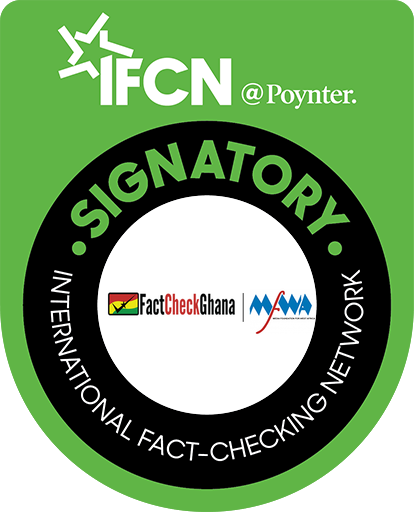The Minister of Finance and Economic Planning, Ken Ofori-Atta, has claimed that the National Democratic Congress (NDC) had planned, in the party’s 2020 manifesto, to introduce an electronic transactions levy (e-levy).
He said this at a town hall meeting in Wa on Monday, February 21, 2022, to push for the passage of the government’s e-levy, which has been greeted with strong disapproval from the opposition NDC and a cross-section of Ghanaians.
Fact-Check Ghana has verified the claim and presents the findings below.
Claim: “What is the reason for any of these [NDC] MPs to say, ‘No. Whatever argument you have, we won’t do it’? And then I go and look at their manifesto, on page 99, and they have something called Uniform Fees, which will look at taxing all electronic transfers—in their own manifesto. So what are they doing?”
Fact-Check Ghana has looked at the part of the NDC’s 2020 manifesto claimed by Ken Ofori-Atta to mean “taxing all electronic transfers”. It is titled “Financial Inclusion and Electronic Payments (FINTECH)”
The said portion of the manifesto talks about policies to ensure financial inclusion in the electronic space. The point referenced by Ken Ofori-Atta is captured there. The manifesto said the NDC government would “introduce a uniform transaction fee policy to guide the electronic payments industry.”

Nowhere in the manifesto did the issue of taxing electronic transactions appear or a new fee mentioned. Rather, it talks about a policy to make the fees uniform.
It is a fact there are existing fees and charges on electronic transactions. It is also a fact that the electronic fees clients pay are not uniform. Taking the telecommunication sector, for instance, the players in the industry do not charge uniform fees for mobile money transactions. Interoperability charges of these telcos are also not uniform.
In the banking sector, electronic fees and charges are not uniform across board. The various banks in the country charge differently.
The NPP government’s e-levy is not about making the fees uniform. It is introducing a new tax on users of electronic transactions.
The NDC’s manifesto highlights the uniformity in the fees and not the introduction of a new tax as the finance minister claims unless there is evidence elsewhere to back a claim that this was a decoy to introduce new taxes.
Besides taking the words in their ordinary meaning, the context in which the uniform fee policy is captured in the manifesto does not relate to revenue mobilisation or taxation.
Per the analysis of the NDC’s manifesto policy statement and the context in which it was made, Fact-check Ghana finds it misleading when Ken Ofori-Atta concluded that a policy on uniformity in fees already charged meant the introduction of a fee meant for “taxing all electronic transfers.”
You may also be interested in:
E-Levy town hall meeting: Ursula Owusu’s claims on UK digital tax completely false
The writer of this report, , is a Next Generation Investigative Journalism Fellow of the MFWA.



